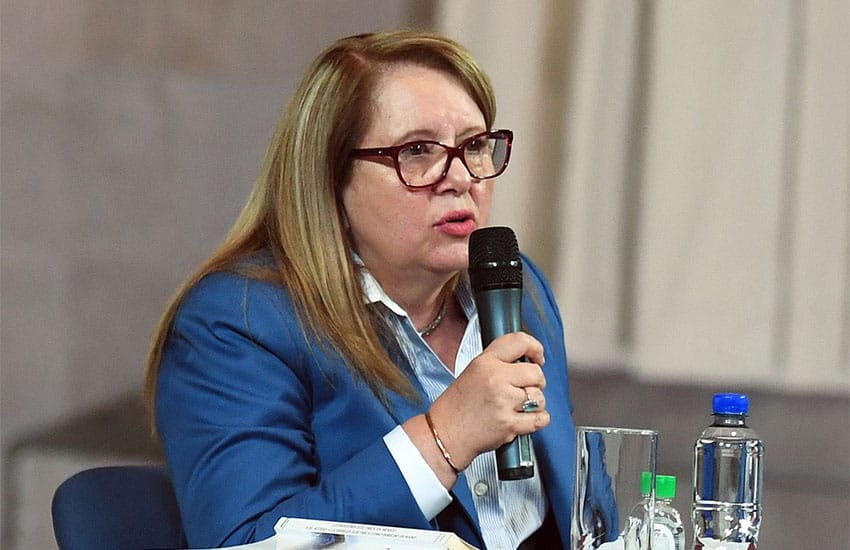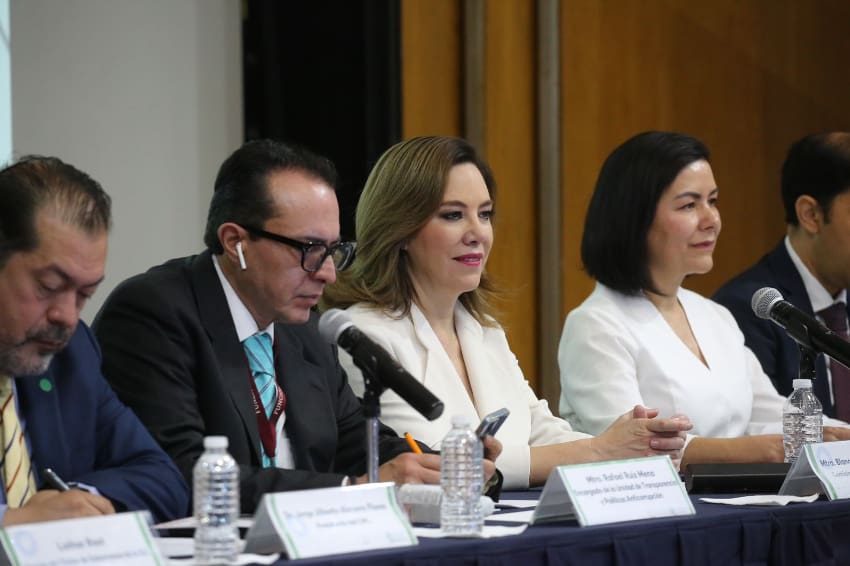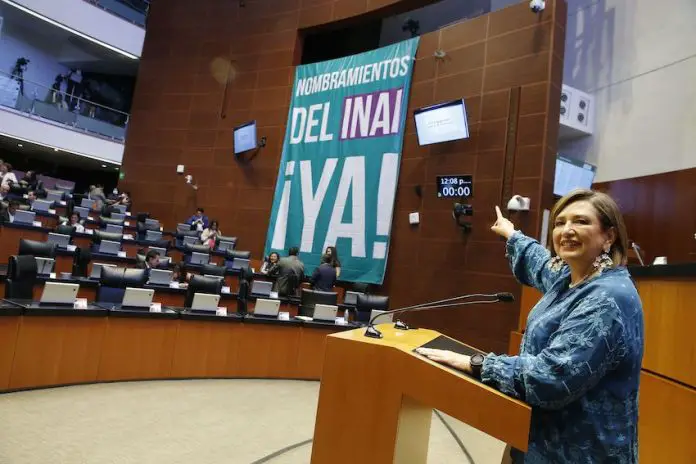The Supreme Court has ruled that the governing body of Mexico’s transparency agency cannot convene with just four of its seven members, a situation in which it currently finds itself due to the federal Senate’s failure to appoint three new commissioners.
The work of the National Institute for Transparency, Access to Information and the Protection of Personal Data (INAI) has come to a halt this month as the agency has only had four commissioners since April 1, one fewer than quorum. Over 2,300 appeals related to information requests that were denied or not adequately filled have been left pending due to the INAI’s current impasse, The Los Angeles Times reported.

Late last month, the INAI launched a legal challenge against the Senate due to what it described as an attack on its constitutionally-enshrined autonomy. It asked the Supreme Court to hand down a ruling that would allow its pleno, as the agency’s governing body is called, to convene with just four commissioners while they wait for the appointment of additional officials.
Justice Loretta Ortiz on Monday declined to issue the suspensión sought by the INAI, but the reasons for her ruling were not disclosed. The INAI said it would appeal the decision, and indicated it would even consider taking the case to the Inter-American Court of Human Rights.
“I understand that there is a lack of consensus in the Senate … to designate the people who will occupy the positions of INAI commissioners, but we will keep working and fighting,” said Adrián Alcalá Méndez, one of the four active members of the pleno.
The Senate last month named two new INAI commissioners, but their appointments were subsequently vetoed by President López Obrador.

“The INAI thing was vetoed, which is my constitutional right, because there was an agreement — I do not know who carried it out, but everything indicates that one candidate was selected by [the ruling] Morena [party] and one by the National Action Party, and that should not be allowed,” the president said March 16, referring to allegations that selection was based on negotiations between the political parties and not on the candidates’ qualifications.
Since then, the upper house hasn’t reached a consensus on any appointments to replace commissioners whose terms have ended. Senators appear unlikely to come to an agreement before the summer congressional recess begins May 1, even as the United Nations pressures them to do so. Senator Ricardo Monreal, Morena’s leader in the upper house, has accused his own party of preventing a new vote to appoint INAI commissioners.
Almost a month after the president’s veto, the news outlet Latinus released leaked audio in which Interior Minister Adán Augusto López is heard informing senators that López Obrador had told him that he was trying to push INAI toward a “period of impasse.”
The president’s veto was consequently seen as an attempt to hobble the transparency agency.

López Obrador has long been a critic of the INAI, saying in early 2021 that it is not needed as the federal government maintains “permanent communication” with citizens and guarantees the right to information.
He said last week that the INAI is “useless,” asserting that it “has not helped in any way to combat corruption” since it was created under a different name during the 2000-2006 presidency of Vicente Fox.
On the contrary, the institute has “legitimized thefts and hidden information,” he said, adding that it has cost the Mexican people 1 billion pesos (about US $55.2 million at the current exchange rate) a year since its creation.
“Hopefully the Congress does something so that the [transparency] function can be carried out by another institution … and the 1 billion pesos per year [can be] used to support the people who need it,” López Obrador said March 18.
He said in January 2021 that his government intended to incorporate autonomous organizations such as the INAI and the Federal Telecommunications Institute into federal ministries and departments. However, the plan – widely denounced as an attempt to further concentrate power in the executive – didn’t come to fruition.
The INAI commissioners are staunchly defending the transparency agency in the face of the attacks by López Obrador and other high-ranking federal officials.
“At INAI we will continue defending … the rights of access to information and the protection of personal data,” Blanca Lilia Ibarra, the agency’s chief commissioner, tweeted Tuesday. “… They are achievements of citizens that must be strengthened, not suspended or limited.”
During a recent discussion with The Los Angeles Times, Ibarra and two other commissioners said that the INAI functions as an essential check on government power.

It “empowers society to pressure government to be transparent, to pressure government to be accountable, and it allows society to participate in public decisions,” Ibarra told the Times.
The newspaper reported that the institute has “helped shape the course of Mexico’s history, ordering officials to grant previously denied information requests that have allowed journalists and activists to uncover massive corruption schemes, locate clandestine graves and investigate large-scale infrastructure projects.”
The Times said that the INAI resolved more than 18,000 appeals for information during the most recent fiscal year, and noted that it also “protects citizens’ rights to access personal data, such as medical records, and sanctions private and public entities for stealing personal information.”
With reports from El País, El Economista, El Universal and The Los Angeles Times
